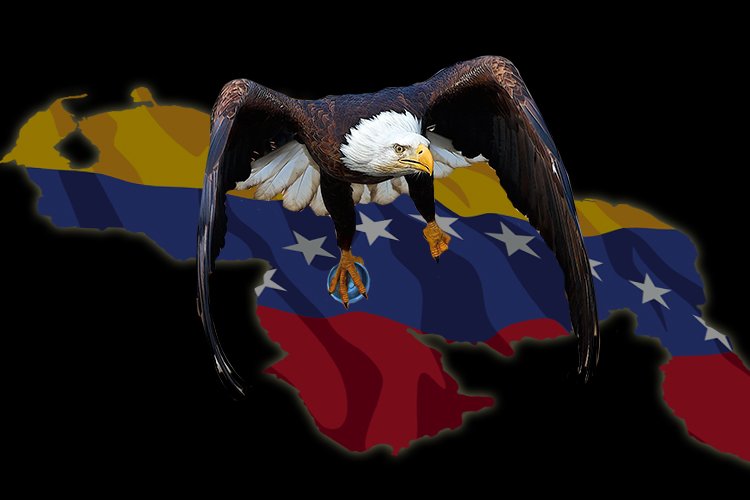El Petro’s Eleven Enemies: Why The World Policemen To Force Venezuela To Its Knees

As we expected, digital assets launched by the Venezuelan government will not help the Maduro regime skirt the US sanctions. 11 influential senators at once presented a draft regulation entitled “The Law on Humanitarian Assistance, Restoration, and the Rule of Law in Venezuela of 2018”, which de facto bans the turnover of El Petro both in the United States and in marketplaces controlled by American business.
It is significant that among the authors of the bill there are ex-potential US president Ted CRUZ; Senator Marco RUBIO who is in the top 100 of the most influential people in the world. Members of the upper house of parliament: Bob MENENDEZ, Bill NELSON, John CORNYN, Dick DURBIN, David PERDUE, Ben CARDIN, Tim KAINE, Michael BENNET, and Patrick LEAHY. In other words, creme de la creme of the American politics from both leading and ever-competing parties.
It is assumed that this legislation will have to adjust the executive order of Donald TRUMP, aimed at preventing the actions of the Venezuelan authorities to evade educational measures. In particular, after the document coming into legal force, American citizens and companies will be prohibited from supplying Venezuela with equipment and software that helps replicate and maintain El Petro.
“All transactions performed by a person of the United States or in the United States that relate to supplying or transactions made in any digital currency, digital coin or digital token that were issued for or on behalf of the Government of Venezuela are banned from the date of adoption of this Law”, the regulation says. Many of its provisions are couched in a similar way.
In addition, the document instructs the State Department and the Securities and Exchange Commission (SEC) to study and prepare a report for the relevant committees of the Congress on how virtual assets can serve to skirt the sanctions regime. State agencies are given no more than six months from the day the Law was signed to prepare the study.
But there is a “humanitarian component” in this paper. The US government is considered to be responsible for providing help and assisting refugees and political immigrants from Venezuela in every possible way. And here, we are talking not only about food and education, but also, apparently, about a specific monetary content, the amount of which, however, has not been determined yet.
It is significant, but on the same day, the vice-president of the country, Delcy RODRIGUEZ, announced that starting from October 8, citizens of the country would be able to use El Petro to pay state fees and, in particular, passport fee. The amount of this payment today is four times higher than the subsistence rate in the country. And for Venezuelans living abroad, it will be $200 for issuance and $100 for renewal till November 1 of the current year. The cost will be much cheaper in Petro - 2 and 1, respectively. If we know that the price of a digital coin is tied to the cost of a barrel of oil on the world market, then we get $86 and $172.
At the same time, according to Bloomberg, 5.000 people flee the country daily.
The prediction of Binewstoday.com has come true - a national virtual currency of a rogue state has appeared on the market, and then the American political and economic authorities are to regulate it immediately. And the first step in this direction has been made. Of course, it does not look the way digital enthusiasts imagined it. But this, unfortunately, is the global legal practice: the real legal regulation of this or that process or phenomenon necessarily begins with a restriction or a ban. You can believe me that methods of control and taking out of unwanted coins from the digital market will not be long in coming. But two more indirect conclusions can be drawn from this story.
The first one. If we evaluate the forces of virtual financial institutions opponents and their supporters, the comparison will not be in favor of the latter. The political weight of those who introduced the restrictive bill, and their influence on the state apparatus, far exceeds everything that lobbyists, supported by major exchanges and digital companies, are so far capable of. Therefore, there is still not much to expect from the SEC decision on the further institutionalization of virtual assets. At best, it will be cautious and undecided. At worst – Bitcoin-ETFs will be banned. And this, in turn, may affect the development of legal regulation of the digital market in Europe, South America, and Africa.
The second one. It is quite possible that the hopes of politicians of many states put on the miraculous anonymous and decentralized nature of digital coins, which allows them to bypass political barriers, will not come true. Their leaders have forgotten that those very coins are not minted in the backyard of the presidential palaces. This is a technology that was not invented by them and does not belong to them. People who are not part of a limited number of knowledgeable persons can only use it. And the owners of the technology, in turn, depend on the politics and the laws of the states, and, maybe, only on one of the states where they live.
Iran or North Korea have one way out - to create and promote their technologies. And one day we will possibly see such intelligent products.